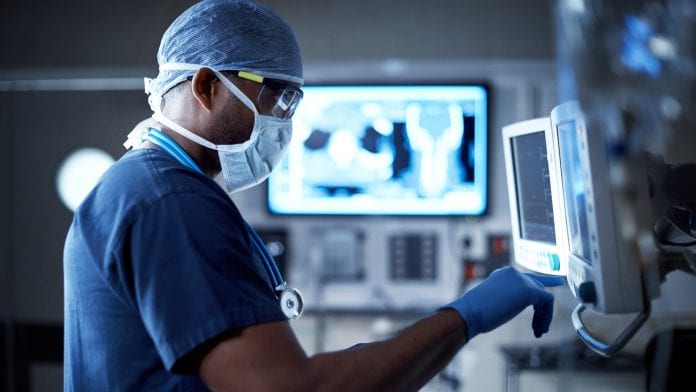
Introducing Cerebriu, the Danish company striving to improve workflow efficiency, quality and patient outcomes through pioneering health technology.
New technology introduced by Cerebriu has been designed to make MRI scanners more intelligent and efficient, therefore providing some patients with much faster responses to their scans in hospitals.
The new health technology is CE-marked, meaning the health tech meets the requirements of the EU directives and standards – could this innovative technology be the key to what hospitals are missing?
How does the innovative health technology work?
A software program makes it possible to detect the areas that are relevant while the patient is in the scanner via image recognition. If there is an area that should be further scanned, the software can tell the scanner and launch an additional scan program immediately.
The software also has the ability to select the images that have been found – thus saving radiologists from unnecessarily reviewing images that have not yielded results.
Automating primary MRI diagnosis
Michel Nemery, chief medical officer at Herlev and Gentofte Hospital, Denmark, who is testing Cerebriu’s technology on patients with neurological symptoms, says: “We hope to be able to automate the primary MRI diagnosis so that referrers can make important clinical decisions about treatment – while the patient is still in the scanner.”
Most, who lie in a scanner to be discharged for a serious illness, hope to get a correct, accurate and quick answer. To receive a correct and accurate answer is essential for the patient, the course of treatment and the health system.
However, in recent decades, there have been no technological breakthroughs to match the rapidly growing after-issue of imaging, and the procedure for scanning and analysing scan images has not been able to keep up. The process is typically the following: the scanner takes many pictures of what it is set to examine, and a radiologist will then be given all images for review to determine whether there is enough data for the diagnostic report, whether there is something that should be scanned further, or if the study is normal.
Fewer radiologists and more scans
Over the last decade, the number of scans have increased significantly. More people are being scanned, and at the same time more and more images are being created per scanning. Currently, there are not enough specialist radiologist’s in Danish hospitals to manage the increased number of scans and corresponding images, and since it takes up to 15 years to train a specialist radiologist, there is also no prospect of that scenario changing in the near future.
Many patients therefore experience a long wait to get answers to their scans and long waits to even get a place in the scanner. Nemery adds: “It is no longer humanly possible to analyse all the image data by the radiologist’s alone. Doctors do not have infinite ‘computing power’ in their heads – and will therefore be a delaying factor in the future of health care. It is therefore very exciting to have a virtual assistant that can help prioritise the images so that we can continue to ensure the highest quality.”
Technology must alleviate the pressure doctors face, and Cerebriu has provided the ideal solution.
New technology to relieve pressure
The innovative software can be connected to the existing scanners in hospitals and is currently being tested at Herlev and Gentofte Hospital.
Using image recognition, the software can optimise the workflows of radiologists and make the scanning process much smoother, precise and efficient. Calculations show that the new software can increase productivity by at least 25% to start with, and then more as the algorithm is called in and capacity correspondingly increases.
This means that patients are scanned faster and receive quicker answers regarding their treatment. Patients will also be able to look forward to shorter time in the scanner and fewer re-calls for further scans.
This development is welcomed by Nemery, who further adds: “This technology allows us to optimise the MRI scan while the patient is still in the scanner. This will benefit the quality of the scan and allow us to use our own resources – and patients’ time – more efficiently.”
More about Cerebriu
The new technology for scanners has been developed by researchers in computer science and radiology. Together they form the company Cerebriu, which is based in Denmark, but reaches out to the whole world.
The company specialises in developing artificial intelligence for scanners with the aim of facilitating the work of radiologists for the benefit of patients.
Learn more about Cerebriu here: We Are CEREBRIU









